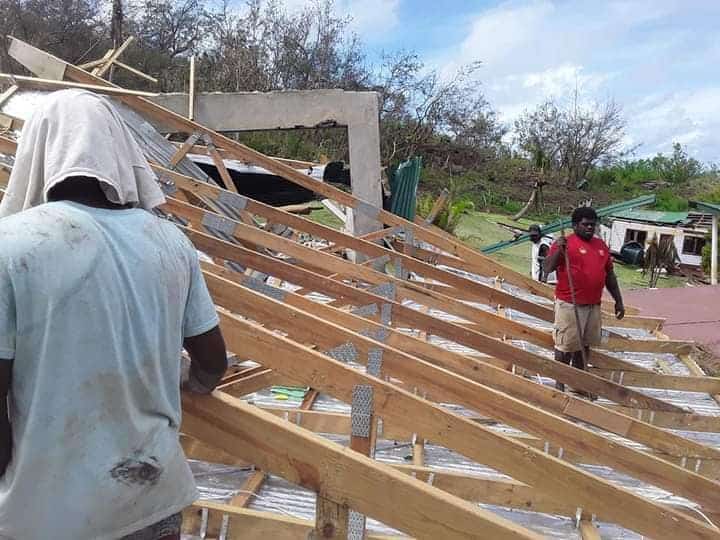Advocating for the availability of financial aid from the government has become one of the key strategies for Pacific youth working towards community resilience.
Sotiana Sorovakatini of the Bua Urban Youth Group said after Cyclone Yasa in 2020, it was heart-wrenching to witness families and members of her village lose decades of hard work and all that they had built.
But with families living in tents months after the cyclone, Sorovakatini said a delay in finding a solution for affected villagers was not a luxury they could afford.
“It wasn’t long after the village youth council, and the Bua Urban Youth network, began to look for a solution for our people who were still stuck in tents, months after that fateful December 2020 night.”
She continued: “Almost a year after our combined efforts spread for the world, an aid agency of the Protestant and Free Churches in Germany heard our story and heeded our urgent call for support.”
Sorovakatini was speaking at the Pacific Resilience Meeting, in a session that highlighted how young Pacific Islanders are ensuring resilience, taking proactive actions in climate change, and enabling ways of reducing disaster risks.
She hopes that their experiences will inspire Pacific youths to act with faith and endure hope with the reality of climate change.
Another speaker at the session, Olive Mafi of the Tonga National Youth Congress, spoke about how they are building youth employability around climate change.
Young Tongans are now being employed in community-based programs such as water management and disaster preparedness trainings, handicraft and design for youths with disabilities, and organic farming—which has encouraged many young women to be more actively involved in agriculture.
A third young speaker, Ikloi Reebelkuul of the Palau Red Cross Society, has made an appeal for more youth engagement in disaster preparedness and response.
“Nothing can happen unless the community is brought to the table into these discussions,” Ikloi said.
“The reason why we really need to invest in community engagement with youths is because they are the ones that going to do the work. It’s important that our youths are engaged in these programs and that we’re also engaging with the communities so that it leads to better planning and better succession plans for the future.”
Olive Mafi from Tonga concurred. “100% of our disaster and humanitarian response team are youths between the ages of 24 to 35, who risk their lives and wellbeing to assist their communities in times of despair and need,” Mafi said.
“The level of commitment from these young people brings hope for a resilient future for the Pacific.”
